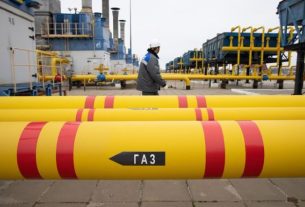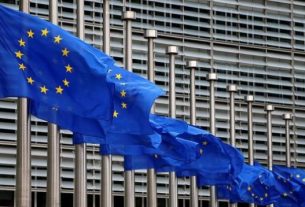Italian authorities issued a freezing order against group of farmers alleging EU farming subsidies were claimed for gardeners.
Three people connected to Italian businesses allegedly made bogus claims more than €375,000 in EU agricultural funds between 2020 and 2023, of which €65,000 has already been drawn from Italy’s payment agency.
The 368 hectares of farmland they claimed to own in order to receive the subsidies were not actually theirs, however, according to the authorities, belonging instead to the naval air station of Sigonella, for which the three suspects used to simply cut the grass.
“That is why they were not allowed to use it for agricultural activities, but only to carry out the grass mowing service,” said a press officer at the European Public Prosecutor’s Office (EPPO) which requested the seizure issued by the judge for preliminary investigations of the Court of Catania today (22 May).
The suspects are two brothers and another partner who took an active part in the alleged scam at a later stage. The brothers are familiar with farming, however, as one of the two actually owns an agriculture business while the other was employed by Italy’s Agricultural Assistance Centre.
This is the third large case involving freezing orders requested by EPPO – which investigates, prosecutes, and brings to judgment perpetrators of criminal offences harming the EU budget – involving Italy this year, leading to more than €3.7m assets being frozen in the past three months.
In 2023, a third of the open investigations related to fraud in the EU farming budget involved Italy, according to EPPO figures.
For Andrea Venegoni, European prosecutor for Italy, there are many reasons for the large number of agricultural fraud investigations in the country.
“First of all, there are many rural areas in Italy where EU funds are distributed to promote agriculture and rural development,” he told Euronews.
“It is also natural that where there is money, there is a potential for fraud. Hence, criminal organisations target EU funding programmes,” he added.
The prosecutor also highlighted the “extraordinary investigative skills” of the Italian financial and judicial police leading to fraud detection, combined with the activity of the European delegated prosecutors who worked effectively with the law enforcement agencies.
Fraud is not within the remit of the Commission’s action as the EU executive can only address administrative errors that may occur and correct the spending with audits – while the EU anti-fraud office (OLAF) is the body responsible for dealing with fraud cases, which may then be prosecuted by EPPO.
“The Commission has zero tolerance for fraud. We trust EPPO, and OLAF, to always investigate, follow up and prosecute fraud cases,” Commission spokesperson Olof Gill told Euronews.
“Since the assets of the alleged perpetrators have been seized with a judicial order, the EU financial interest is fully protected,” he added.
The Commission will be following developments of the case closely to see if the alleged crimes highlight weaknesses in the administrative control systems, the spokesperson continued.__EuroNews





